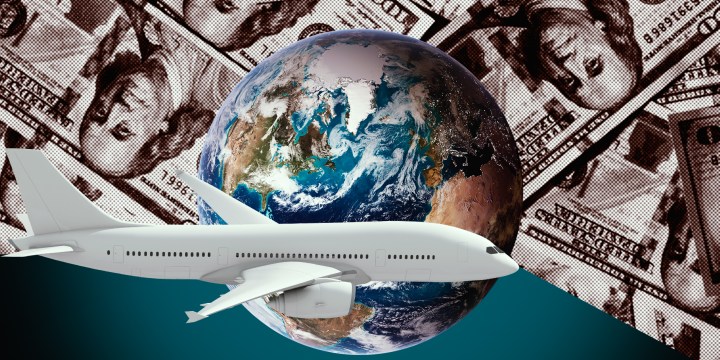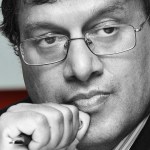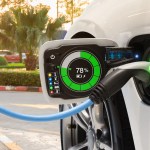BUSINESS REFLECTION
After the Bell: Eat the rich – but slowly

Hatred for the richest 1% has been around for decades. The inequality crisis is undoubtedly a societal injustice, but vast swathes of people around the world just don’t seem to care. The reasons are varied and complex.
Is there any group more hated in modern society than the 1%? I suppose there are, but the 1% get lots of hate. You could call them the ultra-rich, but that would be to grant them some kind of loose humanity, and we wouldn’t want that.
The 1% are blamed for grabbing so much of the world’s wealth, that there is now notionally an “inequality crisis”. They are generally men (spit!) and they create disproportionately more global warming (spit!). Their social attitudes are retrograde, they support the most awful rightwing politicians and, worst of all, they have terrible taste.
Over the past decade, there has been an increase in research on the topic. Some of the results are fascinating and contrary to what you might glean from reading what might be called the “rich people hate press”. Hello, Oxfam.
 If there is any organisation that has tied its colours to this mast of despising the rich, it is the British charity Oxfam. Every year, tactically, just before the Davos meeting of the World Economic Forum, Oxfam releases research designed to manufacture outrage. In 2018, the headline was: Richest 1 percent bagged 82 percent of wealth created last year – poorest half of humanity got nothing.
If there is any organisation that has tied its colours to this mast of despising the rich, it is the British charity Oxfam. Every year, tactically, just before the Davos meeting of the World Economic Forum, Oxfam releases research designed to manufacture outrage. In 2018, the headline was: Richest 1 percent bagged 82 percent of wealth created last year – poorest half of humanity got nothing.
Last year, it was, Richest 1% emit as much planet-heating pollution as two-thirds of humanity.
This has been going on for years, but the odd thing is that huge swathes of people around the world don’t seem to really care. Voters in America, for example, have had multiple opportunities to at least put up a presidential candidate animated by the “inequality crisis” like Bernie Sanders or Elizabeth Warren. And yet generally they choose against doing so, partly because they know these candidates will lose. Polls show that around 60% of Americans think there is too much inequality, but only 40% think it’s a high priority.
What’s going on here? Why has the issue, which is unquestionably a societal injustice, not taken off globally in the way its proponents think it should have? It’s very curious.
One of the reasons I suspect is that most people regard inequality as somewhat inevitable. Modern capitalist society is rooted in competition and individual striving; its mirror, communist countries, were horrible, abject failures until the precise moment the few remaining communist countries that did exist overlaid their ostensibly communist societies with capitalist economics.
The second reason, I suspect, is that the rising imbalance is often a consequence of generally rising wealth and, in these circumstances, although there is a broad concern about inequality, it’s muted. In fact, oddly enough, global statistics show inequality declines in some countries precisely for this reason.
Asia and the ‘West’
You can see this in the difference between attitudes toward inequality in Asia and “the West”. In Asia, where economic growth has been strong for decades, the central concern is how to catch the rising wealth tide, rather than critique it. In Europe, economic growth (where it exists) has been subdued and the concern seems to be much greater. From the perspective of the working class people, and the middle class for that matter, I guess increasing their wealth through economic growth seems like a closed door, so trying to absorb the wealth of the rich seems a strategy with better prospects. Too cynical?
I suspect the third reason why the campaign has floundered is that, from the perspective of governments, the rich are an enormously valuable resource – to such an extent that there is a subtle (sometimes not-so-subtle) competition between nations to attract rich people. In the US, for example, the 1% earned 20% of the total gross income, but paid 40% of all federal income taxes. They are attractive not only for their tax-paying capacity but also as agents of economic development.
The global statistics on the 1% are also frustratingly complex, partly because there is a big difference between wealth inequality and income inequality – and both have big measurement problems. The problem with wealth inequality is that the entire middle class around the world is typically heavily in debt. And the main reason is property ownership. This is why when you are measuring wealth inequality, deciles three to seven could technically be poorer than deciles one and two in periods when property has declined in value. Seems weird. Large chunks of the middle class can have wealth that is technically less than zero, but still be living a pretty high lifestyle.
Owning property is the principal way the middle class leverage themselves, but the higher you go up the scale, the more the rich leverage themselves through the stock market, which typically has shown excellent returns, particularly over the past 30 years. Much of the recent increase in inequality is simply because stock markets have performed better. The result is that wealth distribution seems hugely extreme, but a big reason is that the middle classes are synthetically poor.
But we are on the map. I suppose you could chalk this up as an achievement for the ANC: it wants a more egalitarian society, so if the rich leave, well, hey, it’s a positive. Of course, it doesn’t mean the poor have gotten any richer. It just means the rich have got poorer, relatively speaking. But we should all give thanks and cheer loudly. DM


















From what I’ve seen in the news in recent months, it would seem that the world hates the Jews more than they hate the richest 1% ?
So sadly true of our government’s thinking…😕
Just like the climate alarmists – manufactured rage
Parasitic behaviour manifesting as extraordinary ability to create and/or own wealth. Nothing but good old greed, hogging of resources, downright exploitation of all things (the planet, people, animals, plants, etc, etc.) just so some people can live etraxordinarily comfortable lives. Unfortunately you cant cheat reality, sooner or later we all get paid our dues. It’s sick that you can have dollar and rand billionajres in a coubtry like SA, and alao find people in the Eastern Cape literally starving to death.
Aw shame – not their fault you’re a loser
Please excuse ben harpers rather cruel response. The biggest problem in this country isn’t wealthy people but poor governance. The fewer wealthy people there are in SA, the fewer cash cows can be milked for the benefit of the public.